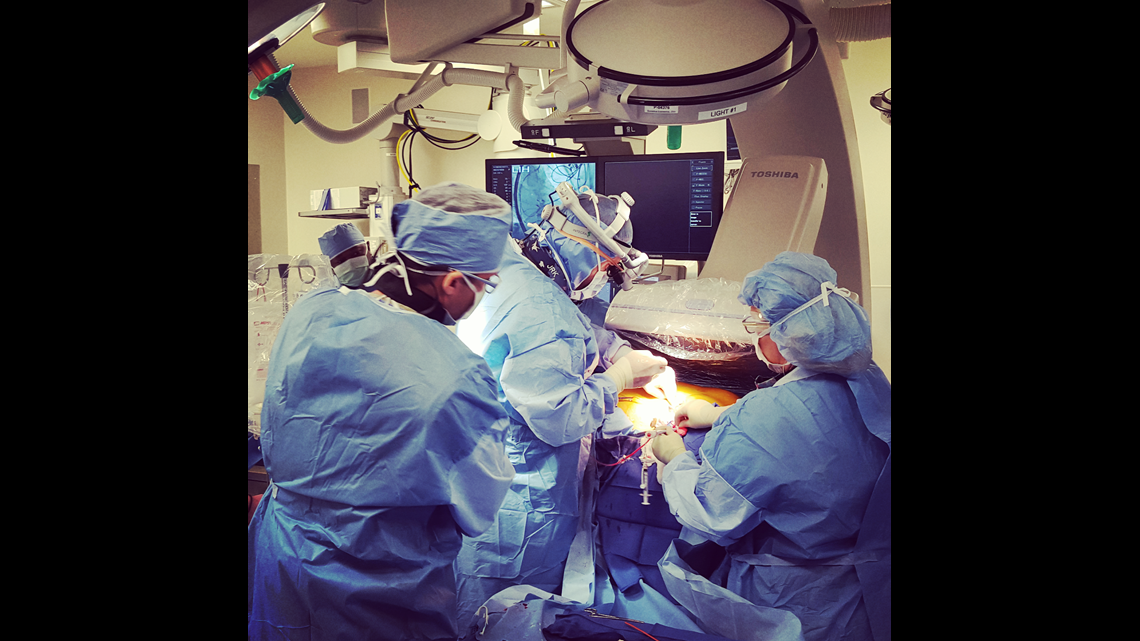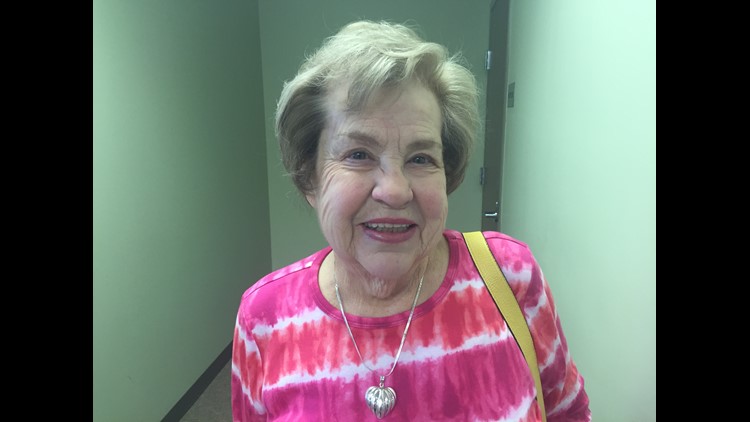Update: Komendantov's family said her surgery went well.


ATLANTA — The FDA granted Piedmont Hospital special permission to perform a groundbreaking heart surgery on Tuesday.
Patients like 76-year-old Margaret Komendantov are usually denied heart valve replacement because they're considered high risk. But now, a new procedure will use the Lotus Valve System to replace the failing valve that separates Margaret's left atrium and the left ventricle. It's a unique system because it allows testing during the surgery itself. Physicians can make sure it's working, reposition it if it's not, and pull back if the surgery becomes too risky.
“There were no other options for me,” Margaret said. "I wasn’t able to walk from one end of the house to the other."
Piedmont physicians had to plead a case for compassionate use since the technology has not been approved by the FDA for a case like this.
“Margaret had already been through several complicated heart procedures, made more complex by the unique anatomy of her heart. Only one solution existed based on my findings, and it required the ability to perfectly position the replacement valve," Piedmont cardiologist Dr. Christopher Meduri said.
Piedmont Doctors consulted with a London surgeon, who has successfully performed the surgery three times. They also consulted with experts in Switzerland to create a 3D model of Margaret's heart. They were able to use that model to preview how the groundbreaking procedure will play out.
“Thousands of patients suffer from mitral valve regurgitation due to severe stenosis,” said interventional cardiologist Christopher Meduri, M.D., MPH, who will perform the procedure alongside a team of experts at Piedmont Atlanta Hospital. “When the valve fails, oxygen-rich blood can’t get out of the heart chamber to sustain rest of the body.”
Heart valve experts know well how different each person’s anatomy can be. “No valve surgery is ever ‘routine’ for us,” Dr. Meduri explained. “Margaret had already been through several complicated heart procedures, made more complex by the unique anatomy of her heart. Only one solution existed based on my findings, and it required the ability to perfectly position the replacement valve.”
Through his research, Dr. Meduri found Vinayak (Vinnie) Bapat, M.D., the one physician in the world who has previously performed the procedure on patients like Komendantov. Dr. Bapat, who is on staff at London Bridge Hospital in England and traveled to Atlanta to consult during the case.
In addition to securing the right technology and the perfect consultant, the Piedmont team enlisted imaging experts in Switzerland to help create a 3D model of Komendantov’s heart. With the image, they developed a preview of the way the procedure would have to play out, working the catheter through her hardened heart tissue. They even used her calcified valve as a landing zone for accurate positioning. After review of those images during a meeting in Washington D.C., collaborators believed it could work.
At the end of the catheter wire is the replacement valve inside a stent (a mesh tube). When expanded, the stent will push everything aside including the old calcified valve and locked in place, allowing Dr. Meduri to position and secure the replacement valve.
“Without treatment, there is a 50 percent chance Margaret wouldn’t have lived an additional two years,” said Dr. Meduri.
The surgery, planned for Tuesday at Piedmont's Marcus Heart Valve Center, will be the first of its kind in the U.S.



